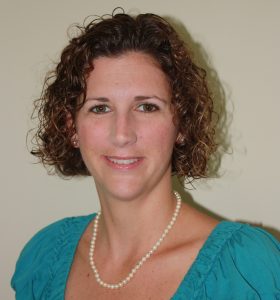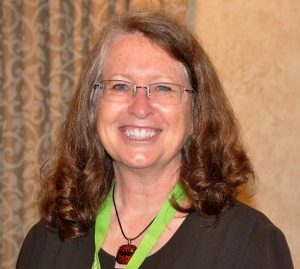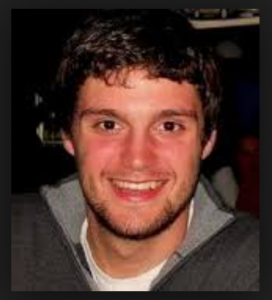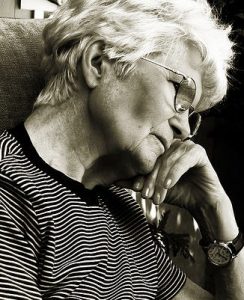 John Greer Clark, PhD
John Greer Clark, PhD
The University of Cincinnati & Clark Audiology, LLC
An enemy generally says and believes what he wishes.
Thomas Jefferson
While our patients are not the enemy, we most certainly at times can be viewed as theirs. Adult patients arrive at our office doors at a set stage within their hearing loss journey. This journey does not begin with the appointment with the audiologist (Gregory, 2012). It often follows a long and circuitous path that may have only reached a point of suspicion of hearing loss at the time of consultation. Along the way, patients who have not yet reached a stage of readiness to embrace our recommended hearing solutions may have categorized persons into one of two camps – the ally camp and the enemy camp.
The enemy camp is filled with those who want the patient to address the very situation he or she has been trying to deny. Friends and family who have been noticing communication failures, and who are becoming increasingly frustrated living with someone else’s untreated hearing loss, have likely suggested scheduling a hearing test on numerous occasions. As part of many patients’ pre-appointment journey, those with hearing loss may have progressed from scanning hearing aid advertisements in magazines and newspapers to reading these advertisements in detail. They may have completed Google searches on hearing loss, hearing loss treatment and hearing aids. And they may have asked friends and acquaintances who wear hearing aids (or who have tried hearing aids) what they think – with responses that sometimes are less positive toward the potential help available than audiologists might hope. And of course, as the journey becomes more protracted the patient and the patient’s communication partners frequently become more frustrated.
Prior to making an appointment with the audiologist, most persons with hearing loss gradually come to the realization that the communication frustrations are the result of, or at least aggravated by, their own existing hearing loss. They come to the realization within their journey that much of the problem lies with them and that they do indeed need to take action. Those family members who may earlier have been viewed as soldiers within the enemy camp, may gradually be viewed as having the persona of a supportive comrade. And these comrades frequently come to the initial hearing consultation appointment with the patient to lend their aid as together they embark on a new leg of the hearing loss journey.
 But not all patients who come through our doors have reconciled themselves with their hearing loss. Some still harbor varying degrees of denial, continuing to place much of the blame for communication failures on the speaking habits of others. And these others continue to be viewed as residing in the enemy camp, pushing for actions that are not wanted or that are not perceived as needed.
But not all patients who come through our doors have reconciled themselves with their hearing loss. Some still harbor varying degrees of denial, continuing to place much of the blame for communication failures on the speaking habits of others. And these others continue to be viewed as residing in the enemy camp, pushing for actions that are not wanted or that are not perceived as needed.
How Do You Want to be Viewed? Continue reading

 Kerri Hudson, AuD
Kerri Hudson, AuD Kris English, PhD
Kris English, PhD
 Emily Pajevic, Class of 2015
Emily Pajevic, Class of 2015 How does an audiologist best serve Amanda and other adolescent patients? We cannot continue to primarily address the parents, undermining the patient’s knowledge and concern for his/her own healthcare and yet cannot ignore the parent’s need for understanding and the crucial role that they play. In healthcare, as well as our own profession, this topic of interacting with adolescents needs to be explored. If the unknown prevents us from providing the best care to this patient population, it is time to delve into this uncharted area, further expanding our knowledge and understanding to enhance our field and our impact on those we serve.
How does an audiologist best serve Amanda and other adolescent patients? We cannot continue to primarily address the parents, undermining the patient’s knowledge and concern for his/her own healthcare and yet cannot ignore the parent’s need for understanding and the crucial role that they play. In healthcare, as well as our own profession, this topic of interacting with adolescents needs to be explored. If the unknown prevents us from providing the best care to this patient population, it is time to delve into this uncharted area, further expanding our knowledge and understanding to enhance our field and our impact on those we serve. 
 Michael Squires, Class of 2014
Michael Squires, Class of 2014 What went wrong? It is obvious that this appointment had come to a point where an audiologist was no longer able to help. Unfortunately, this patient was never referred to anyone who could. There are many instances when a patient in an audiological setting should be referred to another professional for further examination. However, there is one such instance that is consistently ignored; depression. It seems intuitive that any major life changes, including learning of one’s hearing loss, has the potential to cause symptoms of depression. Audiologists are many times the first to notice depression and stress caused or exacerbated by a hearing loss. Yet, when these signs are noticed, whether they are caused by news of a hearing loss or some other event, what is the next step for an audiologist? According to the American Academy of Audiology’s Code of Ethics:
What went wrong? It is obvious that this appointment had come to a point where an audiologist was no longer able to help. Unfortunately, this patient was never referred to anyone who could. There are many instances when a patient in an audiological setting should be referred to another professional for further examination. However, there is one such instance that is consistently ignored; depression. It seems intuitive that any major life changes, including learning of one’s hearing loss, has the potential to cause symptoms of depression. Audiologists are many times the first to notice depression and stress caused or exacerbated by a hearing loss. Yet, when these signs are noticed, whether they are caused by news of a hearing loss or some other event, what is the next step for an audiologist? According to the American Academy of Audiology’s Code of Ethics: